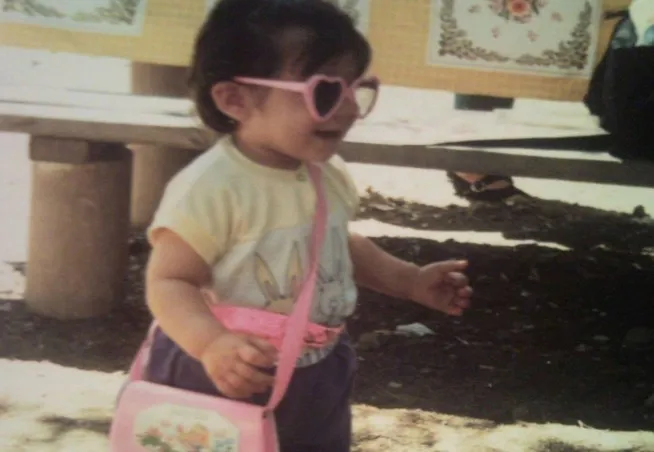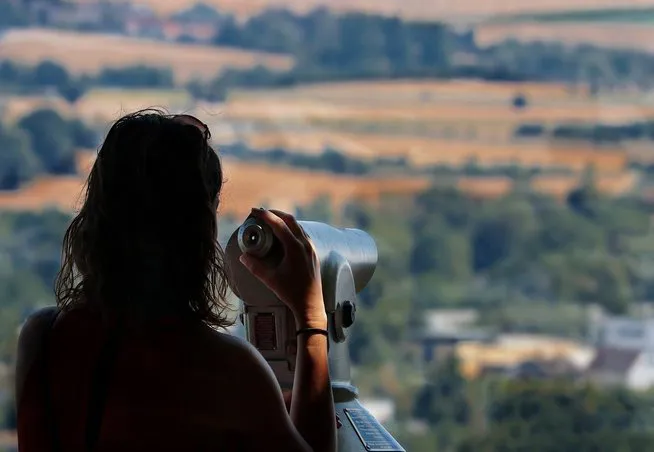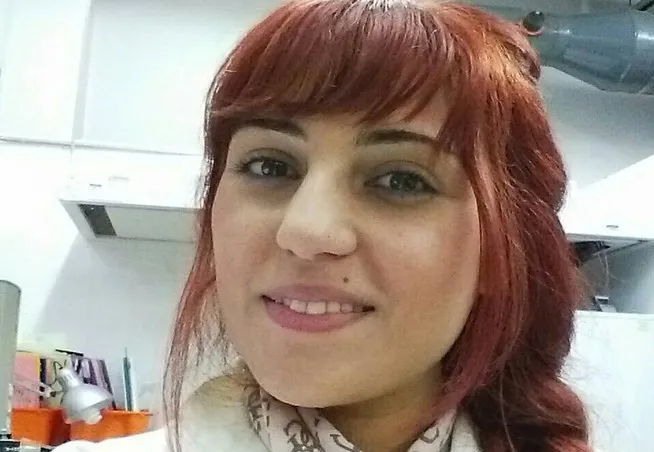Stella Manoli, Research associate
When Stella was young she always dreamed she'd be a maestro creating beautiful music, so understandably one of her favourite toys was her piano. But she also loved to play with her telescope and microscope and whilst doing so discovered a passion for the unknown. This led her to take up her career as a research associate in the field of optics where Stella combines her experimental work with her ability to just keep learning and finding out more - not just for herself but for her team and society as a whole!
Age: 30
Job title: Research associate
Company employed by: University of Southampton
When you were a child, what did you dream you’d be when you grew up?
A maestro! I wanted to make beautiful music.
What is the biggest impact your work will or could have in the future?
Optics and photonics technologies are bringing us ever closer to the planets in our own solar system and all that lies beyond. By using optical systems we will be shortly able to gain a formidable amount of information about the universe, for instance by measuring what elements stars.
What excites you most about STEM?
Through STEM you can change the world! STEM helps you to learn skills including creativity, collaboration, critical thinking, and communication. You can identify and solve problems. You can take our world one step further!
What do you love about your job? What would you change?
The most interesting fact of my research is the conversion of the theoretical knowledge into practice. The way I can use light for material manufacturing and characterisation up to quantum applications.
What gives you the most job satisfaction?
That I am still learning on a daily basis! And this is exciting!!!!
What does a typical day at work involve?
The major aspect of my project is the manufacturing of crystals for quantum communication on satellites. So far, quantum sensitive data are encrypted and sent across fibre-optic cables and channels together with the digital “keys” needed to decode the information. Quantum communication takes advantage of the laws of quantum physics to protect data. A typical working day starts at 8:00 am with me switching on the lasers. About an hour later, I switched off all the lights in the laboratory, wear my safety goggles and gloves and emitted light though the crystals. At the end of the day all the equipment must be switched off.
What’s the most unexpected thing about your job?
The everyday development in the optics field. The knowledge we have is changing rapidly and mind-blowing discoveries are presented (i.e. “slow down” the speed of light. The speed of light is always constant, but the actual value of that speed can change based on the properties of the medium through which it moves. That can have significant influence on the storage of light information).






Did you have any role models when you were younger? What inspired you to do the job you’re doing now?
My own curiosity. As long as I can remember, I have always had questions to ask, such as: Why is the sky blue? Why can airplanes fly? And how do ships not sink? During my high school days, I found myself very fascinated with physics and chemistry subjects, especially when we had to do experiments. So after high school, the only path that was logical for me to follow was to study Physics. During my undergraduate degree my ‘curiosity’ questions were answered and many more were generated. From my undergraduate degree to my PhD, and still to this day as a researcher, I feel the same enthusiasm, the same excitement to work in a laboratory and contribute to expanding the limits of our scientific knowledge.
Any influential toys during childhood?
Kid’s microscope, a telescope and a piano.
Your favourite subjects at school?
Physics, Chemistry, Music.
Qualifications (school/college/university):
GCE A level in Physics, Maths, Biology, Chemistry during high-school. Undergraduate and postgraduate degree in Physics, PhD in mechanical engineering.
Your reason for choosing this career?
I chose this specific career choice because of my passion for the unknown. The combination of continuously learning and experimental work led me to the engineering research field.
Tell me about your career path to date?
Bachelor in Physics from the University of Crete, Greece, Master degree in applied physics specialised in measuring earth’s magnetic field anomalies from Ludwig Maximillian’s university Munich, Germany. PhD degree in mechanical engineering obtained from University of Sheffield, United Kingdom. My PhD project focused on the mechanical and chemical characterisation of plant based materials for high power applications. During my PhD I worked as a teaching assistant in the engineering department. Since last year I am working as a research associate at the University of Southampton in the optoelectronics department. Daily I am working with laser sources and optical components for potential use on satellites in order to collect and transfer data from and back to the satellite stations.
If you could have any job what would it be? How does it differ from what you’re doing?
What I would love to do is to combine my laboratory experimental work with lecturing. I would like to communicate more with students and develop/design modules and courses to help them see the practical applications of physics and engineering.
Your advice to a young person considering a career in STEM?
In the words of Winston Churchill: ‘’Success is not final, failure is not fatal: it is the courage to continue that counts.’’ No one has ever said that a career in STEM world is easy or full of continued success. However, the fear of failure must never diminish the belief in our abilities. Feet to the ground and eyes to the goal!
